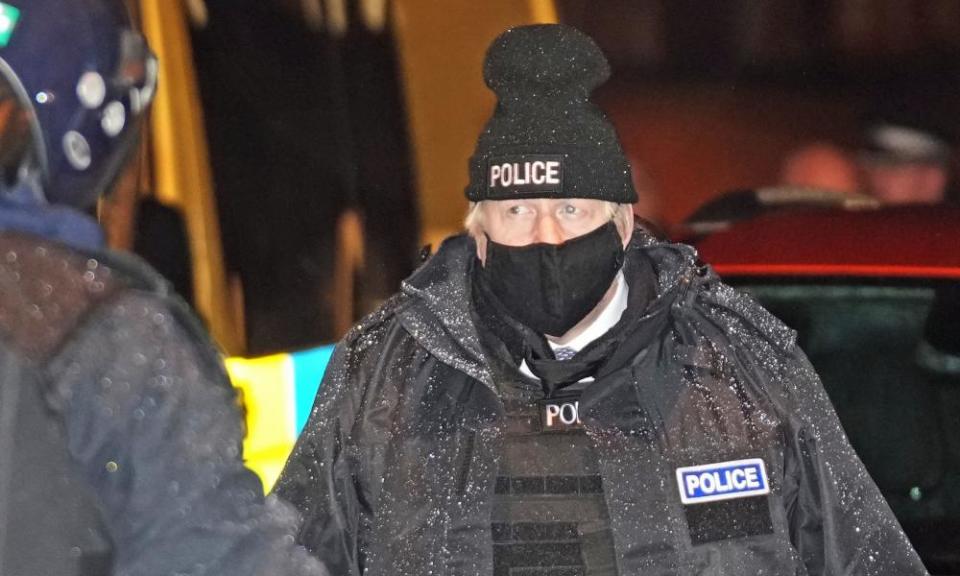Britain’s record on drugs is stuck on a loop. ‘Crackdowns’ simply don’t work

After 50 years of costly failure it’s clear that punishment is no deterrent, yet Boris Johnson is not to be dissuaded
The Misuse of Drugs Act 1971 must be the worst law ever passed by a modern parliament. Its purpose was “to prevent the misuse of controlled drugs” by means of “a complete ban on their possession, supply, manufacture, import and export”. It has plainly failed.
Fifty years on, the act is variously credited with a soaring prison population, the devastation of working-class communities and creating hundreds of thousands of hardened addicts. British deaths from drug misuse are at record levels, having nearly doubled in a quarter of a century. Cocaine deaths have risen five-fold in 10 years. Fatalities per million are three times the EU rate. Narcotics are found in the lavatories of parliament, in Her Majesty’s prisons and in virtually every pub and nightclub in Britain.
Of the many conclusions that can be drawn from this, the most glaring is that ever fiercer punishment is no deterrent and no solution. Yet no politician, certainly no prime minister, dares open their mouth on the subject without pledging tougher penalties. This week, a Boris Johnson aching for a headline proposes yet another war on drugs in which a modest increase in “treatment and rehabilitation” for those who “repent” is accompanied by a blood-curdling crackdown. He promises to “dismantle” 2,000 county lines drug networks, without explaining whether the 1,500 he says they have already shut down have staunched the flow of drugs into communities.
The policing minister, Kit Malthouse, says that drugs lead to “murder, mayhem and degradation”. He omitted to say it was not consumption but his continued outlawing of the drugs market that is the principal cause of such outcomes. Meanwhile, Johnson will expand police testing for drugs, taking away driving licences and passports and imprisoning reoffenders. There is no evidence that such draconian measures ever work.
Related: Middle-class drug users could lose UK passports under Boris Johnson’s plans
Britain is currently addicted to media-driven retribution, nearing mob rule in certain high-profile cases. The clang of prison gates is seen in Victorian terms as the answer to every social evil. This makes it difficult for those supposedly enforcing the 1971 act at the frontline to seek new remedies and reforms. Police forces such as the West Midlands have been trying – in the face of Home Office opposition – to decriminalise possession, if only to concentrate on more serious crime.
But such responses do nothing to mitigate the criminal consequences of drug supply remaining illegal and unregulated. While California’s cannabis sellers are going on sommelier courses and those in the Netherlands are relieving epilepsy and depression, Britain’s are sent to jail.
Staggering sums are traded for drugs in Britain, and staggering sums are wasted on failed suppression. The British market, reputedly worth £9.4bn, is effectively fully deregulated. Nothing in Johnson’s proposals indicates any attempt to curb, let alone license and tax, this market. He is the dealers’ fairy godmother.
No route from the drugs problem emerges from the growing movement to put various narcotics on a par with alcohol. But with New York joining several other US states in decriminalising cannabis, and Oregon recently decriminalising possession of harder drugs, the time has surely come for research and piloting, not a retreat into yet more tabloid authoritarianism.
Drugs produce an irrational reaction in Britain’s political community. Deep-seated prejudices and taboos are evoked, with responses dominated by a manic groping for ever more severe punishments. After 50 years of costly failure, a reasonable politician might advocate at least an open mind. In most democracies that is happening. Not in Britain.
Simon Jenkins is a Guardian columnist

 Yahoo Finance
Yahoo Finance 